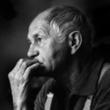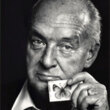The Unbearable Lightness of Being: A Novel
(Libby/OverDrive eBook, Kindle)
Available Platforms
Description
More Details
Similar Titles From NoveList
Similar Authors From NoveList
Published Reviews
Kirkus Book Review
Like the much-praised (little-read?)Book of Laughter and Forgetting (1980): another Kundera collage--part narrative, part speculative, combining erotic, political, and metaphysical elements. The philosophical frame is quite shifty this time, moving from notion to notion: consideration of the need for heaviness in existence (lack of weight equates with anomie, lovelessness, terror); kitsch; relations with animals; a theory of Paradise based on the denial of excrement. And, in these scattered sections, Kundera seems more often coy than profound, his apothegms usually verging on the commonplace. (""A question with no answer is a barrier that cannot be breached. In other words, it is questions with no answers that set the limits of human possibility, describe the boundaries of human existence."") On the other hand, interest quickens whenever Kundera turns to his narrative: the plight of a disenfranchised Prague surgeon, Tomas, and his photographer-lover, Tereza--mirrored by a Western couple, Swiss professor Franz and his painter-mistress, Sabina. Both couples are involved in oblique investigations of the spirituality and freedom of sex--as tested against the lack of spirit and freedom in the world at large. There's one powerfully touching, thoughtfully charged section rendering the death of Tomas and Tereza's old dog; the prose offers a few luminescent touches that are quintessential Kundera. (""Then he pulled off her panties and she was completely naked. When her soul saw her naked body in the arms of a stranger, it was so incredulous that it might as well have been watching the planet Mars at close range."") But, apart from these moments, the book generates little accumulating power: the oddness of its format requires great reader-patience--a patience that's rewarded only with evasive suggestion. And though Kundera's seriousness and natural grace are everywhere, they are finally beetled by the feckless anemia of the collage/pastiche approach. Copyright ©Kirkus Reviews, used with permission.
Reviews from GoodReads
Citations
Kundera, M. (2023). The Unbearable Lightness of Being: A Novel . HarperCollins.
Chicago / Turabian - Author Date Citation, 17th Edition (style guide)Kundera, Milan. 2023. The Unbearable Lightness of Being: A Novel. HarperCollins.
Chicago / Turabian - Humanities (Notes and Bibliography) Citation, 17th Edition (style guide)Kundera, Milan. The Unbearable Lightness of Being: A Novel HarperCollins, 2023.
Harvard Citation (style guide)Kundera, M. (2023). The unbearable lightness of being: a novel. HarperCollins.
MLA Citation, 9th Edition (style guide)Kundera, Milan. The Unbearable Lightness of Being: A Novel HarperCollins, 2023.
Copy Details
| Collection | Owned | Available | Number of Holds |
|---|---|---|---|
| Libby | 77 | 77 | 0 |



































